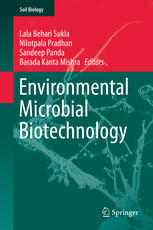

Most ebook files are in PDF format, so you can easily read them using various software such as Foxit Reader or directly on the Google Chrome browser.
Some ebook files are released by publishers in other formats such as .awz, .mobi, .epub, .fb2, etc. You may need to install specific software to read these formats on mobile/PC, such as Calibre.
Please read the tutorial at this link: https://ebookbell.com/faq
We offer FREE conversion to the popular formats you request; however, this may take some time. Therefore, right after payment, please email us, and we will try to provide the service as quickly as possible.
For some exceptional file formats or broken links (if any), please refrain from opening any disputes. Instead, email us first, and we will try to assist within a maximum of 6 hours.
EbookBell Team

4.7
16 reviewsThis book provides a timely review of strategies for coping with polluted ecosystems by employing bacteria, fungi and algae. It presents the vast variety of microbial technologies currently applied in the bioremediation of a variety of anthropogenic toxic chemicals, mining and industrial wastes and other pollutants.
Topics covered include: microbe-mineral interactions, biosensors in environmental monitoring, iron-mineral transformation, microbial biosurfactants, bioconversion of cotton gin waste to bioethanol, anaerobe bioleaching and sulfide oxidation. Further chapters discuss the effects of pollution on microbial diversity, as well as the role of microbes in the bioremediation of abandoned mining areas, industrial and horticultural wastes, wastewater and sites polluted with hydrocarbons, heavy metals, manganese and uranium.